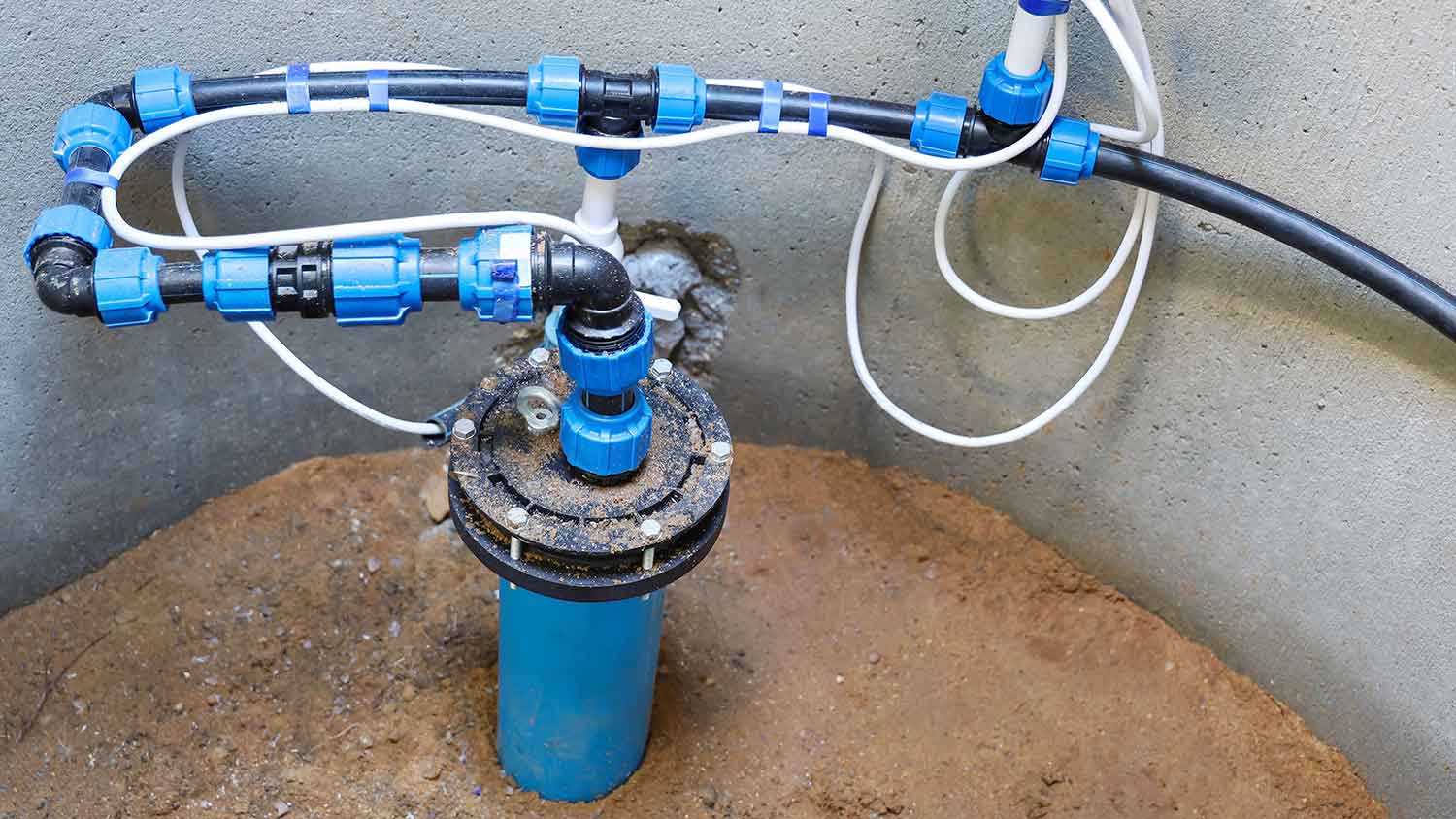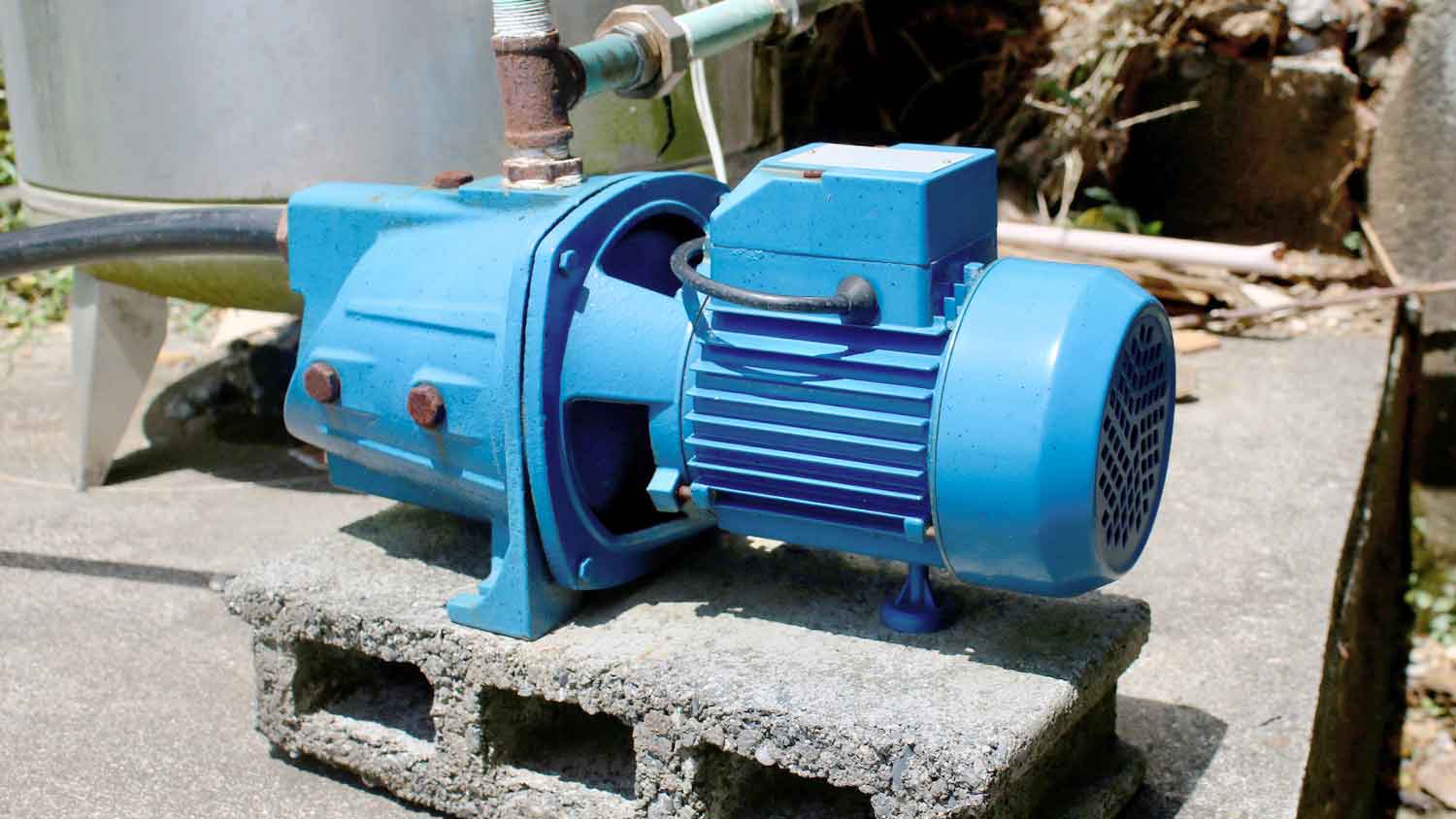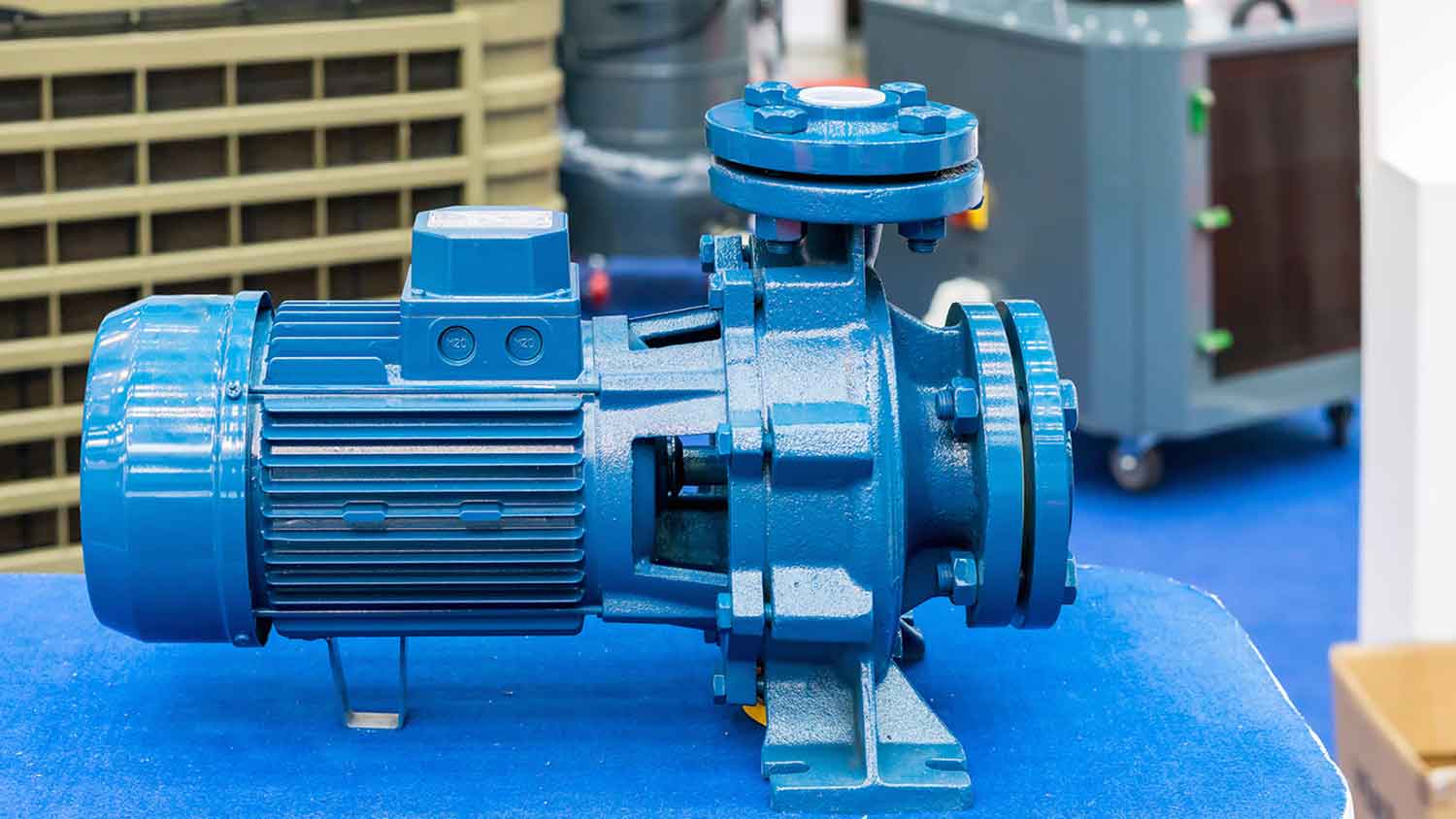
Well pumps require electricity to operate and can affect your monthly bill. Learn about the factors that impact the average cost to run a well pump per month.
Homeowners will do well to know the difference


The right pump will depend on the size and depth of your well, so hire a well pump contractor to find out its exact dimensions and make the perfect pick.
Submersible pumps camouflage easily and last a long time, but they’re also highly powerful and may drain a well that’s too small before its time.
Centrifugal pumps are ideal for shallow wells and are low-cost, low-maintenance, and high-performing.
Jet and centrifugal pumps are more susceptible to sand damage or cavitation issues than other pump types.
Hand pumps are the most affordable option, but will require a fair amount of manual labor to operate.
If your home’s water supply comes from a well or you’re planning to drill one, then you should prioritize having the right well pump installed on your property to keep it flowing. There are four main types of well pumps: submersible pumps, jet pumps, centrifugal pumps, and hand pumps. If you want to install a new or replacement well pump, here’s what you need to know about each.

If you like a well pump that stays out of sight and out of mind, choose a submersible pump. This self-priming motorized pump works with most wells and lasts up to 25 years with very little maintenance needed. However, if you’ve got sandy soil, make sure your well and pump pro takes extra steps to protect the pump so that it lasts more than just a few years.
Since submersible pumps give you a rather hands-off well water experience, they’re the most expensive. They’re definitely worth the cost, but make sure a submersible well pump is the right fit for your well first. Otherwise, this powerful pump could run it dry.
| Pros | Cons |
|---|---|
| Lasts long | Expensive |
| Self-priming | Prone to corrosion |
| Good for most depths | Too strong for some wells |
Best for: Most wells, regardless of depth

Aside from transporting water from the well to your home, jet pumps can irrigate your land and garden. These motorized pumps can also remove excess water from flooded areas. There are different types of jet pumps made for deep wells and shallow wells. A professional can install them away from the well for easier access, although there are submersible jet pumps.
Jet pumps are inexpensive and low maintenance. However, they do not stand up well to sand and grit. They’re also prone to cavitation problems—the formation of air bubbles in a liquid—which requires a speedy fix to keep the water flowing properly.
| Pros | Cons |
|---|---|
| Less expensive | Cavitation issues |
| Good for irrigation | Sand causes damage |
| Easy to access | Lower efficiency |
Best for: All wells, provided you pick the right size

Centrifugal pumps use the energy of motion (kinetic energy) to pump water. Unlike other, more complex motorized pumps that can get waterlogged, centrifugal pumps have no drive seals. This cuts down on maintenance because there’s little concern for damage or corrosion.
These pumps are small yet mighty, and they offer consistent performance. However, because they are submerged underwater, cavitation issues are possible.
| Pros | Cons |
|---|---|
| Less expensive | Only shallow wells |
| Low maintenance | No suction power |
| Steady performance | Cavitation issues |
Best for: Shallow wells

A hand pump is the simplest of all pumps, but get ready for an arm workout if you install one. Unlike the other pumps with motors or suction power, you’ll have to crank the lever to get the water out of the well into the holding tank.
These manual devices are less costly than their counterparts, but they’re not as commonly used because of the labor required to operate them. However, their drawback is also their advantage. Since utility power isn’t required, they can be used for off-grid installations.
| Pros | Cons |
|---|---|
| Good for off-grid | Manual operation |
| Simple design | Hard and tiring to use |
| Less expensive | Only for small homes |
Best for: Off-grid wells
If you have a well or are drilling one soon, you must have a pump to access water. But which one is right for you? Here are two important guidelines:
There are different pumps for shallow and deep wells, so choose the right type for your well’s depth. It might be as easy as referring to a well driller’s report. If that’s unavailable, try a long measuring tape with a sensor that alerts you when the water’s surface is touched. Another way is to tie fishing wire to an empty bottle or a fishing bobbin and lower it until it floats, then measure the length of wire it took to get there.
Well pumps are measured in horsepower (HP), but you’ll also want to pay attention to their water output in gallons per minute (GPM). Calculate 1 GPM for every water fixture in your home (including faucets, showerheads, and appliances). For example, a three- or four-bedroom home will need a pump with a capacity of 8 to 12 GPM.
Choosing the best type of well pump for your home’s water supply needs is an important decision. When in doubt, contact a local well pump contractor for expert advice.
From average costs to expert advice, get all the answers you need to get your job done.

Well pumps require electricity to operate and can affect your monthly bill. Learn about the factors that impact the average cost to run a well pump per month.

Your well tank replacement cost will vary depending on a few key factors, such as the size and capacity of the well pressure tank.

When your water system isn’t working as intended, it’s time to repair your well pump. This cost guide will break down well pump repair costs and the parts involved.

When it comes to choosing between a water well jet pump vs. a submersible pump, knowing how they differ is key to picking the right one for your home.

Can you have a well on private property? It all depends on local laws. Find out everything you need to know about whether you can dig a well on your property.

Dive into our guide on well pipes and what size water line you need from your well to your house for a worry-free water supply system.